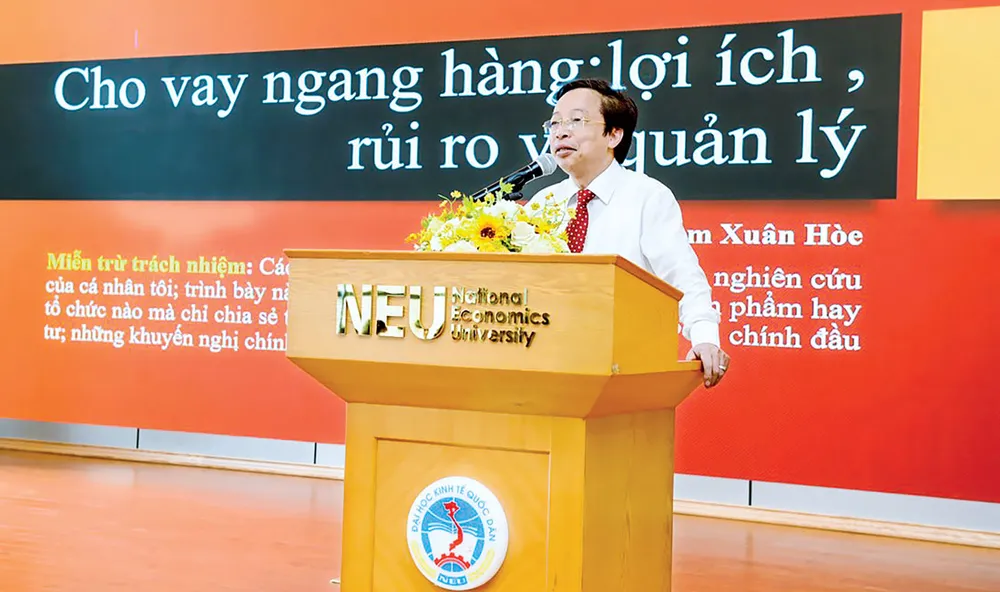
The collapse of a series of Chinese P2P exchanges in 2018 moved this trend to flow into Vietnam, which is a cause for concern and regulations are urgently required.
P2P services from China flooding Vietnam
The first P2P model appeared in Vietnam in 2016. By early 2019, the State Bank of Vietnam stated that there were around 40 P2P companies operating under names such as Tima, Trustcircle, We Cash, Interloan, Lendbiz, etc. About ten of these companies were from China and some from Indonesia, Malaysia and Singapore. In July 2019, information from the Nexttech Group disclosed that 60-70 companies providing P2P services had moved from China and were flooding Vietnam.
Along with an increase in numbers, P2P services are also deployed in diverse activities. Besides personal loans, many P2P companies such as Lendbiz and VNVON have connected investors to businesses for capital with an investment return of upto 20% per year. Businesses can easily access capital in this way through simple procedures and without a collateral.
P2P lending is growing rapidly in Vietnam at a very high growth rate of 35-50%. This is also attracting domestic investors and foreign businesses. P2P lending makes borrowing procedures simpler and faster, meets loan needs, and applies technology in evaluating customer ratings in a shortened process. This form is creating more channels of guidance and access to capital, increasing the value of data resources among the population, and supporting small and medium businesses to borrow and reduce black money activities.
Operations out of control
The P2P model also has many variables, such as some anonymous and hidden sources have traded on P2P lending platforms to evade taxes, or do money laundering and terrorist financing; or multi-level financial mobilization making lenders and borrowers fall victim to fraud and appropriate capital illegally. Many sources of heavy lending and black money activities "lurk" in the vicinity of P2P lending platforms to lend at very high interest rates.
For the development of the P2P lending model, many countries have a regulatory framework to govern. In Vietnam, before the explosion of P2P lending services at the end of 2018, the State Bank had warned that organizations and individuals would take advantage of the P2P lending platform to do banking activities not licensed by the State Bank and violate the law. The government has designated the State Bank as the focal point for research, and the State Bank is learning from experiences of other countries. Conditional businesses have been proposed for the pilot implementation of the P2P model. However, so far, the State Bank has not yet published a draft regulation governing this activity.
As such, P2P lending is still operating without control and it is impossible to identify the industry and the field of these companies. Most P2P companies are operating in the form of financial advisory companies though not yet licensed by the State Bank, which means that raising capital and lending is not allowed. While intermediary financial institutions are subject to control by the State Bank, State Securities Commission or Ministry of Finance, P2P companies are only under the authority of the Department of Planning and Investment.
No legal corridor to protect lenders
P2P lending in Vietnam is developing spontaneously, in which investors are standing at the most dangerous position. Lenders have to manage their own risk and take risks if they lose money when hackers bring down exchanges, or due to technical problems, data loss, or stolen personal information, as there is no legal corridor to protect them.
This situation leads to many untoward consequences. For example, China has surpassed the US and UK to reach USD 192 bn in the P2P market, and it pays for floating the model operations. In 2018, hundreds of P2P exchanges collapsed, thousands of exchanges became shaky, more than 20 large companies defaulted on more than CNY 23 bn (about USD 3.3 bn), and hundreds of smaller companies also defaulted more than CNY 30 bn (about USD 4.4 bn).
Nguyen Tri Hieu, banking and finance expert.
To avoid following the same path of failure, Can Van Luc, a finance and banking expert, has repeatedly proposed that there should be a legal framework for P2P lending companies. Specifically, regulations on investment limits and loans from investors; provide licensing, operating, and monitoring standards for P2P platform providers; regulations on customer authentication (KYC), information disclosure and settlement plan when a P2P company goes bankrupt. Many experts have expressed their views on P2P lending to either prohibit or legalize the legal framework. However, up to this point, prohibition or management has not been taken up by the State Bank of Vietnam.




















